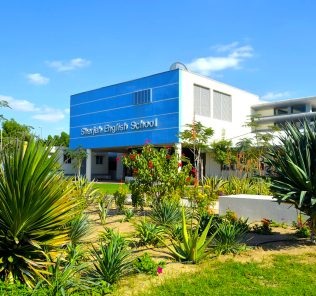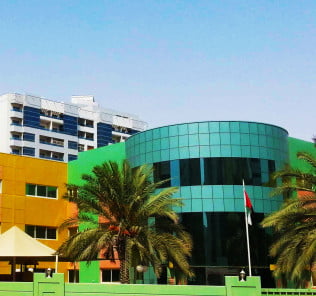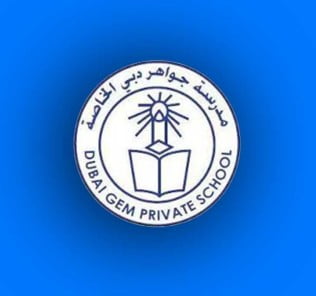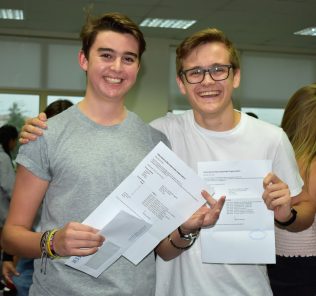This Thursday marks the day when students around the UAE (although the majority will be based in Dubai schools) receive the results of their two year International Baccalaureate Diploma Programme, International Baccalaureate Career-related Programme and International Baccalaureate Career-related Programme studies. This will be the culmination of two years of intense study for qualifications that are widely described as the “Gold Standard” for university entrance and the results will shape the future for many of their young recipients. These are first round of results for students following western-based pre-university programmes. (I)GCSE, GCSE and A Level results will be published in August. Some 50 plus schools across the UAE now offer one or more of the International Baccalaureate Programmes. It is worth noting that not all schools offer Post 16 study in the IB. Schools like Ajman Academy, reviewed here, offer IB programmes only up until the International Baccalaureate Middle Years Programme.
Little known in the UAE until more recent years, (Dubai International Academy was the first UAE school to offer the IB curriculum just over 10 years ago), the Geneva-based IB organisation was set up in the 1950’s with the goal of providing a programme of education that would be transferable globally for the children of staff working at the UN. In between times, some 1.7 million students around the world have participated in the IBDP programme.
In the UAE, with children from many different countries who have aspirations to study at university around the globe, or whose families are mobile and seek a truly transferable international curriculum for their children, the IB programmes, and particularly the IBDP, have become of ever more relevance. Schools that traditionally have followed the “home country” curriculum, are increasingly offering the IBDP in order to meet needs driven by the increasingly international nature of their students. From IB World Schools in the UAE (Dubai International Academy, Raha International and Uptown School), to established UK curriculum schools (such as BISAD, JESS AR, and Repton Dubai), US curriculum schools (GEMS Dubai American Academy and Universal American School) and even Indian curriculum schools (GEMS Modern Academy and GIIS), a wide range of highly regarded UAE schools are embracing the IB Diploma Programme.
In 2017, 159,400 students worldwide (the IB programme is offered in 152 countries), sat their final exams for the IBDP. Although there is some argument as to whether the IBDP enjoys the same global reach of the International A Level, it is nevertheless a globally accepted pre-university qualification that, if scored highly, is likely to secure a student a place at any of the top universities worldwide.
The IBDP offers a hugely rich, inspirational curriculum that offers all students the opportunity to develop academically, emotionally and creatively in ways that arguably no other curriculum can better. Key advantages versus other curricula include:
- Significant international recognition as a pre-qualifying curriculum by universities worldwide (although there are exceptions, including China)
- The quality of education afforded by schools delivering the IBDP is generally very high because the inherent demands of the curriculum require high calibre teachers if the school is to be successful
- Heavily weighted to examinations in most subjects, between 20% and 40% of the final grade is, however, awarded according to coursework in most subject blocks. The Coursework component (between 20% and 40% according to subject) does recognise the different gifts of students outside examinations (except in Mathematics for which grading is based entirely on performance in examinations).
- A curriculum that offers students with academic skills across a broad range of subjects the opportunity to develop their intellectual curiosity and potential to a very high degree.
The IBDP curriculum comprises study of six subjects, usually one chosen from each of six subject blocks and the three DP “core” elements of (a) study and examination in the “Theory of Knowledge” (TOK); (b) Creativity, Activity, Service (CAS) evidence; and (c) a 4,000 word individually researched “Extended Essay” (EE). Each of the six courses are collectively worth a maximum of 42 points. Only the Theory of Knowledge (TOK) and Extended Essay (EE) components are (externally) assessed on the basis of 100% coursework and together these elements are only worth 3 points. Creativity, Action, Service – the remaining element in the DP core, which requires 150 hours of relevant activity over the two year programme – does not contribute any points, but must be completed for qualification.
The six subject blocks are studies in language and literature, Language acquisition, Individuals and societies, Sciences, Mathematics and The Arts. All students are required to take Mathematics, the Language and Literature of study (currently English, French or Spanish), an additional foreign language, and a Science. At a minimum, three subjects are taken at Higher Level and three subjects at Standard Level, although students can choose to take four subjects at Higher Level and two subjects at Standard Level. Both Standard Level and Higher Level papers earn the same marks (although Higher level subjects require more hours of study and may award different total scoring for examinations and coursework).
Each of the six examined subjects are scored between 1 and 7 points. The theory of knowledge (TOK) and extended essay (EE) components are awarded individual grades and, collectively, contribute up to 3 additional points towards the overall Diploma score. The maximum score achievable is 45 points – approximately 0.1% of students, so 1 in 1,000, entering the IBDP, score this mark annually. Whilst there has been much discussion and comment about the “dumbing-down” of grades for A Levels, for instance, no such accusation seems to be levelled at the IBDP.
For many students the fundamental difficulty of the IBDP is not the complexity of any given subject, but the requirement to have abilities across such a wide breadth of very different subjects, and to manage the workload with the independent learning and research skills that are a key element of the programme. Retaining knowledge is viewed by the IB as a basic skill and high performance in examinations requires analysing and presenting information, evaluating and constructing arguments and solving problems creatively.
The degree to which employers recognise the IB is still very dependent on the country and clearly the dominant qualification in any country will generally always be better understood, but there is some evidence internationally that amongst otherwise equivalent students, those who have studied for the IBDP achieve higher starting salaries than those with alternative qualifications.
It is argued that the highest 45 point IB DP score is equivalent to a student achieving 6 International A Levels at Grade A, although the more broadly accepted recognition is that 31 Points equates to achieving 3 International A Levels each at Grade B, 36 Points equates to achieving 3 International A Levels each at Grade A, and 42 Points equates to achieving 3 International A Levels each at Grade A*. In 2017, the global average point score was 30; the pass score for the Diploma is 24 points. A score of 40 points or more is generally expected to open the door to the best universities globally, including the top universities in the UK and USA.
SchoolsCompared.com will be updating information in relation to student success in all the IB Programmes as we receive it over the coming days. For now, we hope that all those UAE students, who have completed their IBDP studies in 2023, are able to celebrate their achievement and can look forward to their continued educational success, as they move on to the next phase of their academic or work life.
© SchoolsCompared.com. A WhichMedia Group publication. 2023 – 2024. All rights reserved.




































































Leave a Response